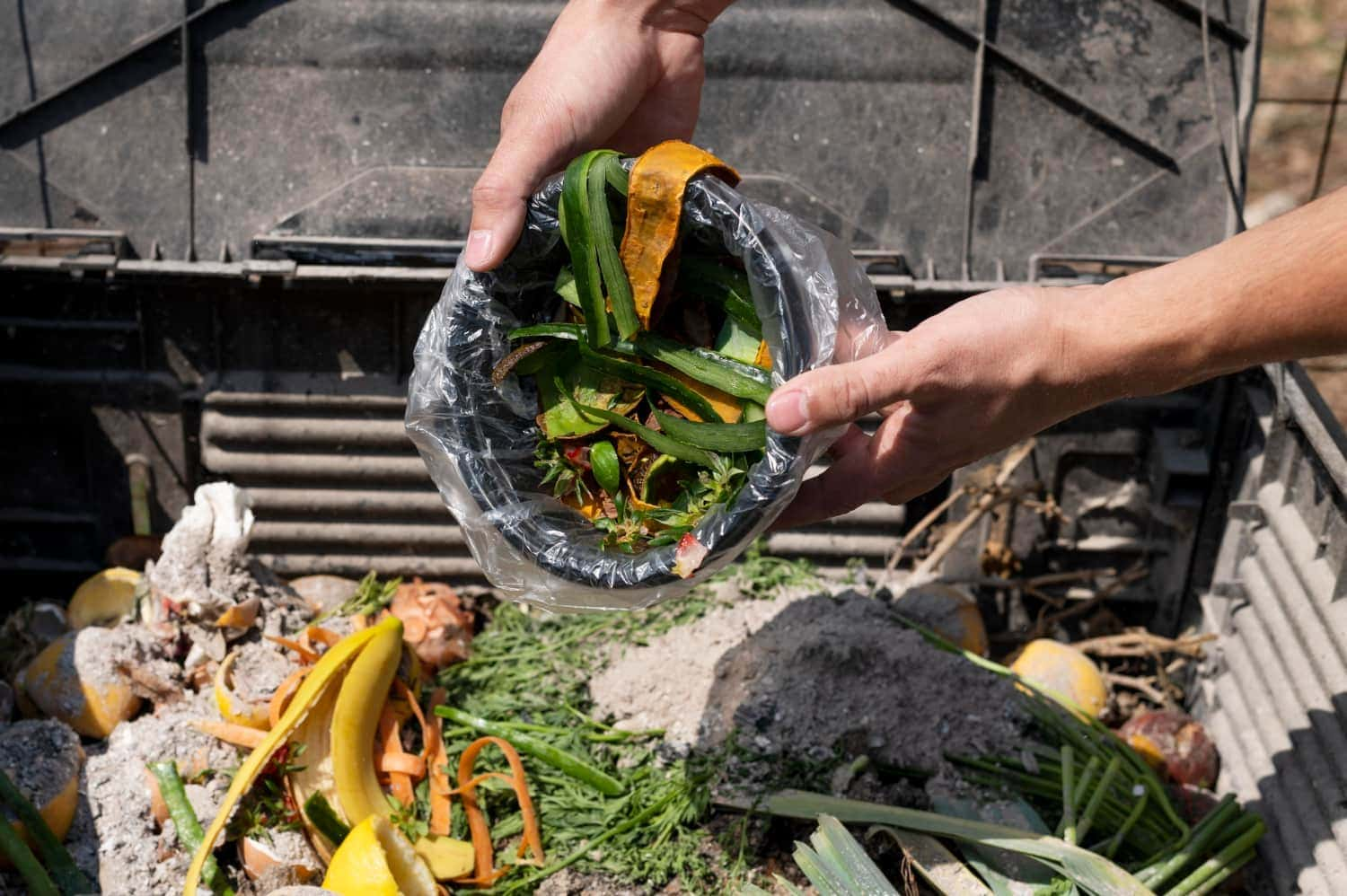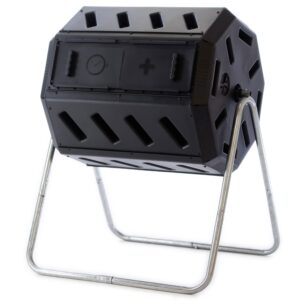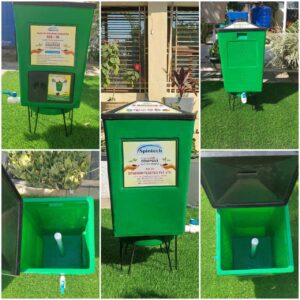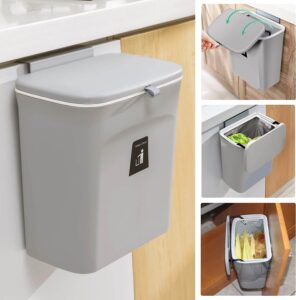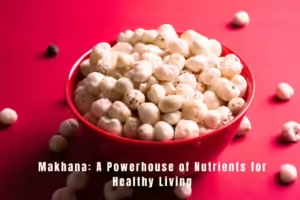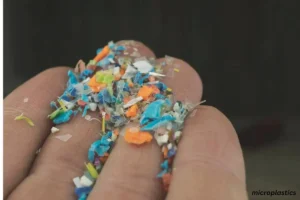Composting is an extremely beneficial approach to managing food waste. It not only helps in reducing waste, but you can also produce nutrient-rich soil. Further, you can use it to nourish gardens, potted plants, and urban green spaces. Here, we are going to learn simple way to compost kitchen waste and their benefits.
The benefits of composting food waste
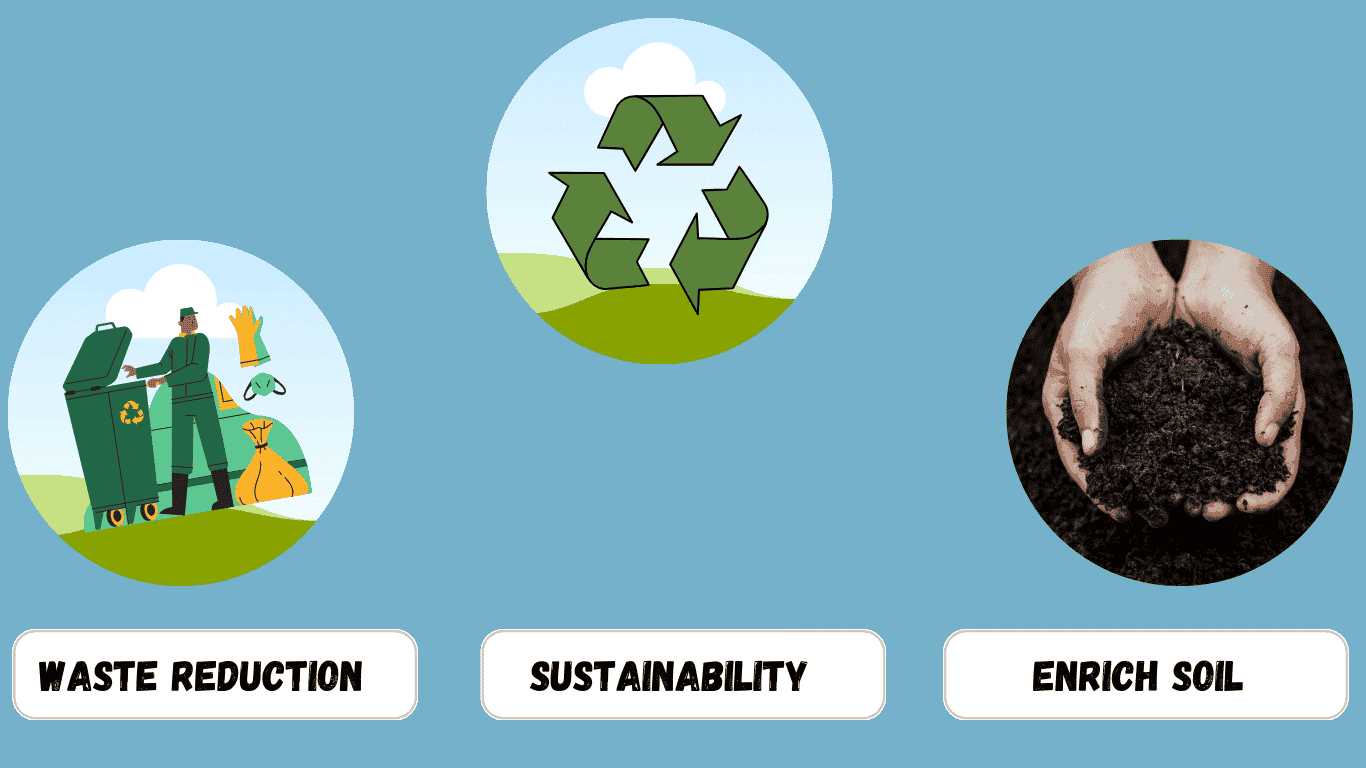
Waste reduction- Globally, about 931 million metric tons of food waste is produced. Out of which, the percentage of food waste produced by our household is 61%. It is a significant matter of concern. If we compost all this food waste, then we can reduce a significant amount of food waste.
Sustainability- 10% of greenhouse gasses are produced solely from leftover food. It will aggravate the environmental concern, If we do not take any measures. However, composting may greatly reduce our reliance on chemical fertilizer.
Help to Enrich Soil-This is one of the benefits of composting food waste. Using compost can significantly improve soil health because it is a natural fertilizer that delivers necessary nutrients to the soil.
How to compost kitchen waste? Here are the Step-by-step process-
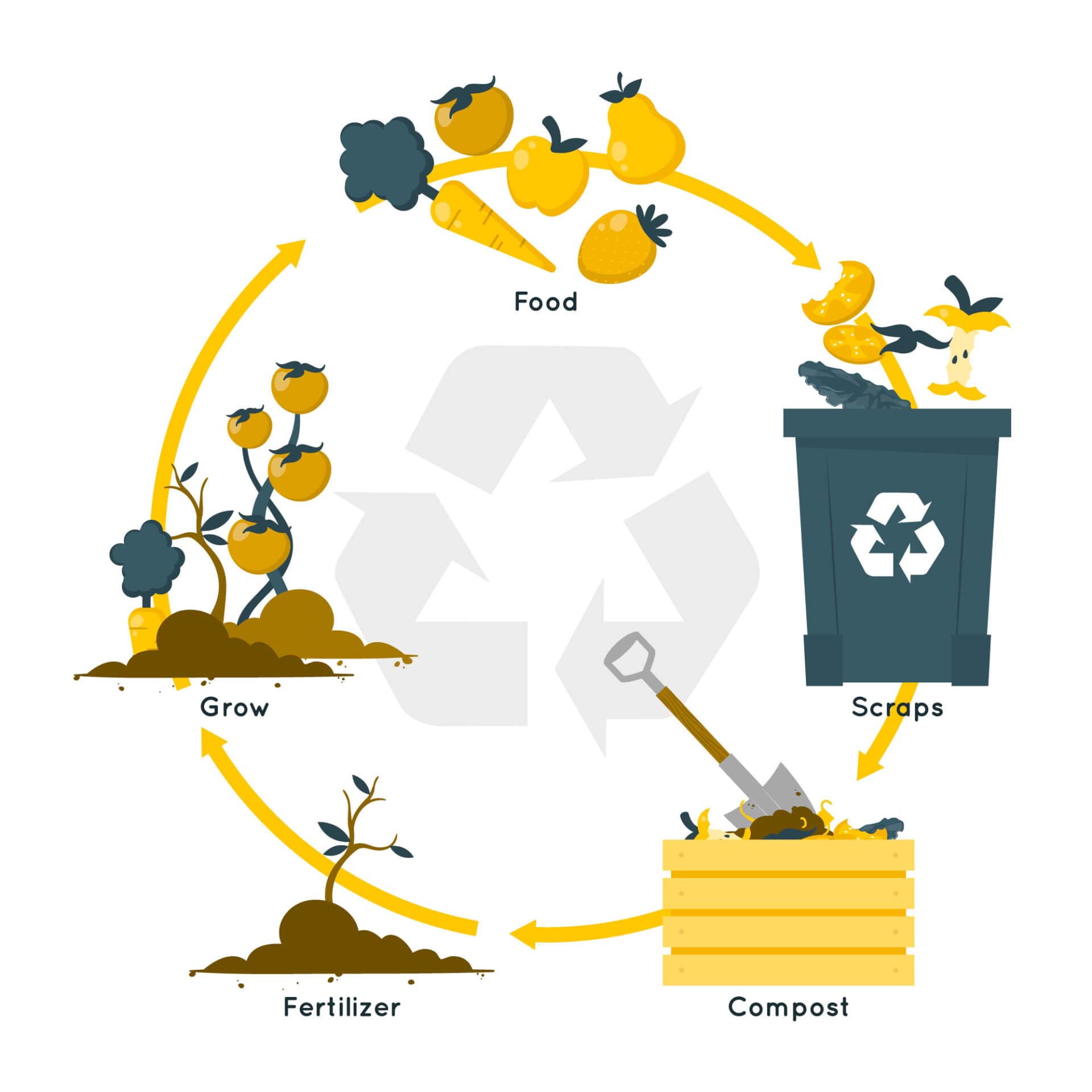
Choose Best Bin As Per Your Space:
You can select the compost bin according to your space, there are many options such as a compact compost bin, a compost tumbler, and a worm bin (vermicomposting).
Collect food waste:
Collect as much as fruit and vegetable scraps, coffee grounds, tea bags, eggshells, etc.
Note: Some products should avoid because they do not break down easily and release the odor. For example-(Meat and meat scraps, BonesFish scraps, Pet or human feces, and Oil or fat)
Collect brown waste:
It is also important to have brown waste in your compost. Being carbon-rich, it will act as “fiber” for your compost. Which absorbs excess moisture and prevents the odor. You can add Dry leaves, Paper (newspaper, writing/printing paper, paper plates, napkins, and coffee filters), Cardboard, Paper towel, and Dead plant as a brown waste.
Add material:
First, keep the compost bin according to your convenience where there is sunlight and a good drainage system, if possible. Put brown material (shredded newspaper, dry leaves, paper towels, etc.) at the bottom of the compost bin to absorb excess moisture. Put food waste green material on top of it, and if possible cut it into small pieces. By doing so, it will compost quickly. You’ll have to create a minimum of 3 layers, by putting brown material at the top of the bin.
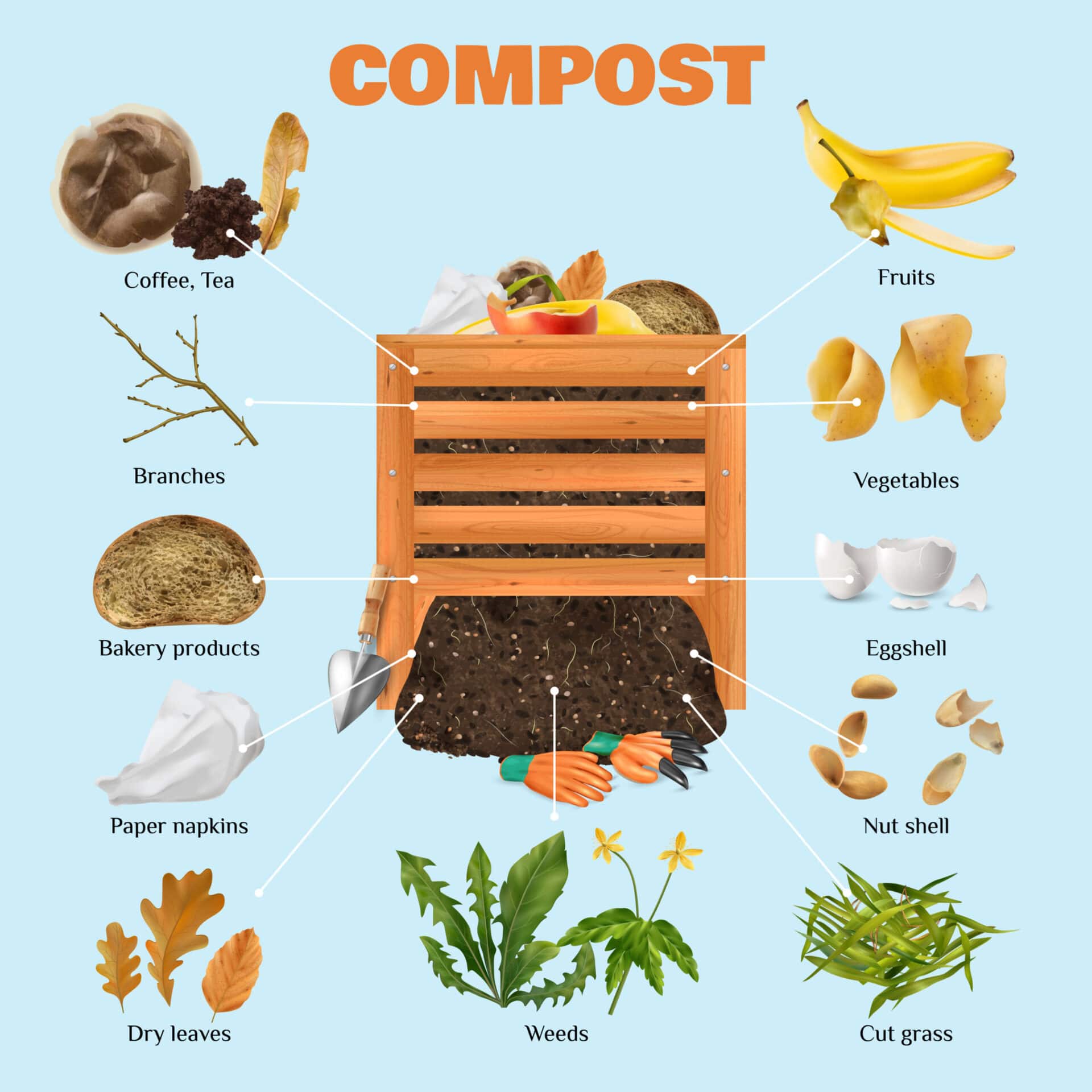
Maintenance-
After layering the compost, it is also important to check it timely manner. If the compost looks too dry, then you can sprinkle water in it and avoid adding too much water.
Harvesting-
Composting is a gradual process. It takes time to convert into a fully usable compost depends on the location, environment, temperature, and maintenance.
Time-
If it is well maintained then it takes 2–3 months and lack of well maintained can take up to 1 year.
The finished product-
Try to keep the compost until it turns into a dark, crumbly soil-like material. Finishing product gives you an earthly smile.
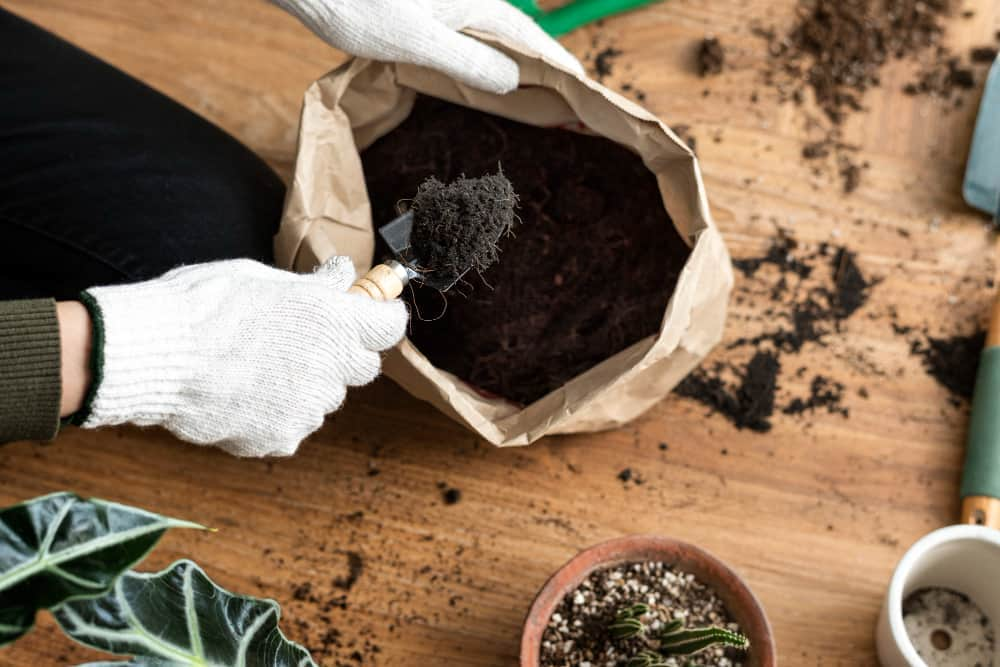
Now it is ready to use according to your requirements.
In this way, you can easily compost kitchen waste at home and convert it into a valuable material. Which will benefit our environment by reducing the waste. It will also assist you in creating a better garden and greenery without the use of chemical fertilizer. Green garden will give make your home and premises more appealing while keeping them fresh.

